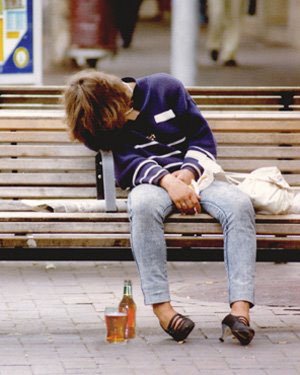 Red Ribbon Week started as an awareness campaign to reduce the demand for illegal drugs, and eventually expanded to include alcohol, tobacco, and violence. This week, MADD is teaming up with State Farm for Red Ribbon Week to discuss the negative consequences of teenage drinking. The team are handing out a booklet called The 411 on Teen Drinking.
Red Ribbon Week started as an awareness campaign to reduce the demand for illegal drugs, and eventually expanded to include alcohol, tobacco, and violence. This week, MADD is teaming up with State Farm for Red Ribbon Week to discuss the negative consequences of teenage drinking. The team are handing out a booklet called The 411 on Teen Drinking.
The 411 on Teen Drinking is backed up with research on the prevalence of teenage drinking and the negative effects that drinking can have, especially on teens. Since the brain is still developing in the teenage years, teens who participate in excessive drinking can suffer long-term cognitive side effects. Teenagers who binge drink will score more poorly on verbal and nonverbal memory, attention focusing, and exercising spatial skills when compared to their non-drinking counterparts.
In addition to the negative health consequences of drinking, the booklet also discusses serious legal ramifications, such as what can happen if a teenager is caught drinking and driving. In addition to losing the freedom provided by a driver’s permit, teenagers can seriously affect their future opportunities by receiving a DUI early in life. Certain colleges will not admit to applicants with a DUI on their record, and jail and probation is a likely consequence as well.
According to research by Dr. van der Vorst of Radboud University Nijmegen in the Netherlands, parents who try to teach their teens drinking in moderation at home does not correlate with teens practicing moderation when they are out of their parents’ sight. The research shows that the more teenagers are allowed to drink at home, the more they will also drink outside of the home.
The 411 on Teen Drinking will be distributed to schools throughout the country during Red Ribbon Week. MADD National President Jan Withers said, “When it comes to underage drinking, teens may feel like ‘everyone is doing it,’ but the truth is that only one out of five teens binge drinks — which means four and of five don’t.”